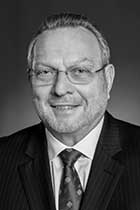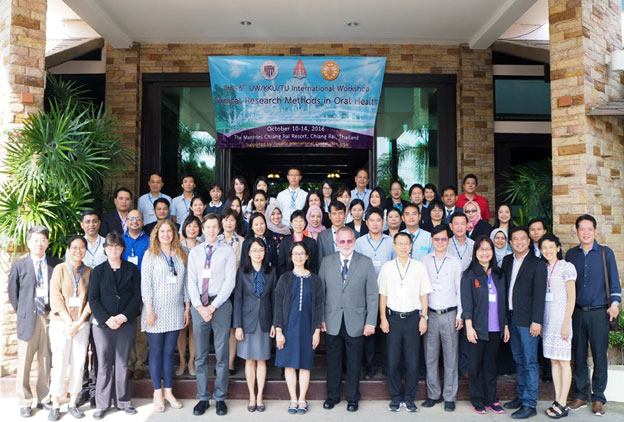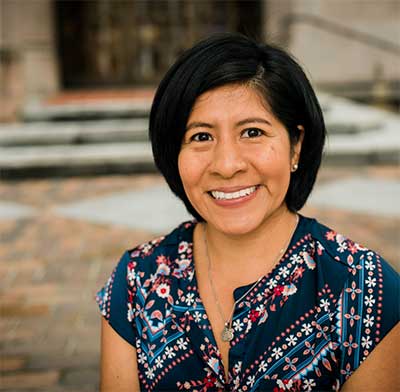 My name is Jennifer N. Ricaldi-Camahuali, faculty in the Department of Social Dentistry at Cayetano Heredia Peruvian University (UPCH) in Peru. I have a specialty in Pediatric Dentistry and training in Clinical Epidemiology, and five years ago I came to Seattle and received a Master of Public Health in Global Health at the University of Washington (UW).
My name is Jennifer N. Ricaldi-Camahuali, faculty in the Department of Social Dentistry at Cayetano Heredia Peruvian University (UPCH) in Peru. I have a specialty in Pediatric Dentistry and training in Clinical Epidemiology, and five years ago I came to Seattle and received a Master of Public Health in Global Health at the University of Washington (UW).
In the last ten years as faculty in the department of Social Dentistry, I shared my experiences and knowledge gathered from training at UPCH (Peru), an internship at the Bebé-Clínica (Brazil), and a novel perspective about Global health learned at UW. My goals are to motivate, train and teach dental students about Public Health and Global Health, and bring awareness of the importance and necessity of improving oral health of the most vulnerable population.
My experience as a trainer in Colombia and coordinator in Peru of a Pan-American Health Organization project (SOFAR, Salud Oral Factores de Riesgo) increased my understanding of the necessity to integrate oral health within general health.
It was in May 2014 when I participated in the First Latin American Workshop on Clinical Research Methods in Oral Health, organized by UW in Peru, where I was motivated by Dr. Jorge Luis Castillo and Dr. Ana Lucia Seminario. Both, alumni, and faculty members from UPCH, encouraged me to achieve oral health research goals abroad. During this training experience, I had the pleasure of meeting Dr. Tim DeRouen, who was director of the Center for Global Oral Health, and he became a mentor. His vision in expanding global oral health research was inspiring. After coming to Seattle in 2016 for the 25th Summer Institute in Clinical Dental Research Methods, I was accepted into the program of Master of Public Health in Global Health at UW in 2018.
During my first year as a student in the MPH program in Global Health, I volunteered in the Timothy A. DeRouen Center for Global Oral Health, collaborating in the organization of the symposium “Inter-professional Collaboration in Healthcare: Adding the Oral Health Component to Successful Projects Worldwide,” and co-coordinating the second collection of data in the oral health project in the Peruvian Amazon- InterACTION Labs Project in Claverito (Iquitos). These opportunities further contributed to my training, learning closely from the experience of experts and peers in the oral health area.
Since my last year during the MPH program when the COVID-19 pandemic spread worldwide, my interest in health policies, implementation science, and science communication areas increased, adding some additional steps to my journey. Currently, these subjects are key factors to ensure the protection and access to health care and conditions to reduce the impact of oral diseases during and after the pandemic.
Seems like this journey has not ended but has allowed me to learn from experiences from all around the world. I have received knowledge and guidance in understanding the importance of strengthening oral health services, especially in the most vulnerable populations. I’m convinced that the improvement in communication and collaborative work will promote equal and quality oral health care worldwide.
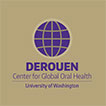
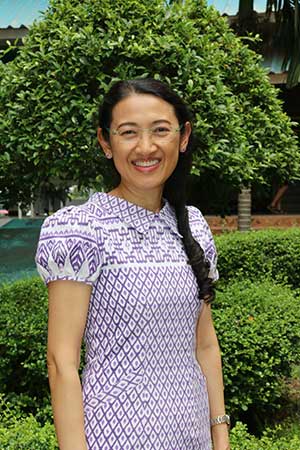 Hi, my name is Kemporn “Pom” Kitsahawong, I am a full-time pediatric dentist and Associate Professor in the Faculty of Dentistry, Khon Kaen University. I was one of the long-term (PhD) trainees in the Fogarty International Center Training Program in Clinical, Public Health and Behavioral Oral Health Research for Thailand under the collaboration between KKU and the University of Washington (UW). Through the generous support from NIH, I received the opportunity to attend the 2010 UW Summer Institute and subsequently enrolled in several epidemiology and biostatistics courses offered at the UW School of Dentistry during my first year in PhD in Oral Science program at KKU.
Hi, my name is Kemporn “Pom” Kitsahawong, I am a full-time pediatric dentist and Associate Professor in the Faculty of Dentistry, Khon Kaen University. I was one of the long-term (PhD) trainees in the Fogarty International Center Training Program in Clinical, Public Health and Behavioral Oral Health Research for Thailand under the collaboration between KKU and the University of Washington (UW). Through the generous support from NIH, I received the opportunity to attend the 2010 UW Summer Institute and subsequently enrolled in several epidemiology and biostatistics courses offered at the UW School of Dentistry during my first year in PhD in Oral Science program at KKU.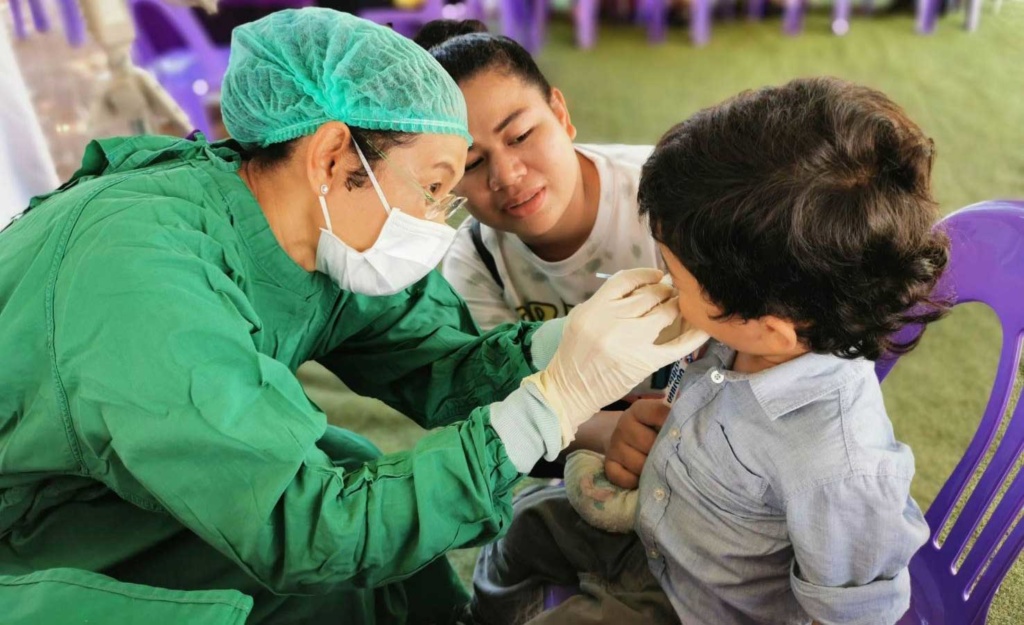 Over the past 10 years after my training with the UW team, I have been assisting Dean Pitiphat in expanding the knowledge and expertise in clinical oral health research to LMIC’s in Asia. The International Workshops on “Clinical Research Methods in Oral Health” jointly organized by University of Washington, Thammasat University and Khon Kaen University was conducted every 2 years. In the recent workshops, I served as a mentor facilitating the trainees from the leading institutes in Southeast Asia countries on developing a research proposal. This was a great opportunity to be able to share the experience with several international participants and to build partnerships that have mutual benefits in this region. Regarding research support, I have received consecutive grants from KKU Research Unit, KKU Faculty of Dentistry and the Office of National Higher Education Science Research and Innovation Policy Council (NXPO). These allow my team to carry on our research and recruit additional junior clinicians into the team.
Over the past 10 years after my training with the UW team, I have been assisting Dean Pitiphat in expanding the knowledge and expertise in clinical oral health research to LMIC’s in Asia. The International Workshops on “Clinical Research Methods in Oral Health” jointly organized by University of Washington, Thammasat University and Khon Kaen University was conducted every 2 years. In the recent workshops, I served as a mentor facilitating the trainees from the leading institutes in Southeast Asia countries on developing a research proposal. This was a great opportunity to be able to share the experience with several international participants and to build partnerships that have mutual benefits in this region. Regarding research support, I have received consecutive grants from KKU Research Unit, KKU Faculty of Dentistry and the Office of National Higher Education Science Research and Innovation Policy Council (NXPO). These allow my team to carry on our research and recruit additional junior clinicians into the team.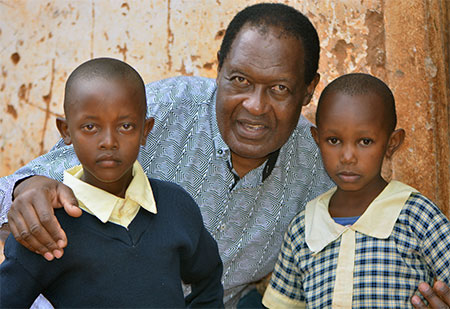
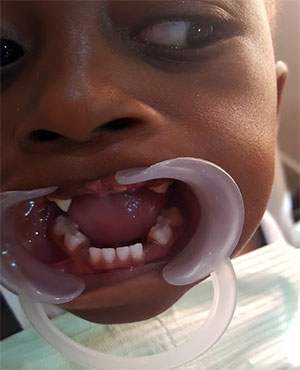
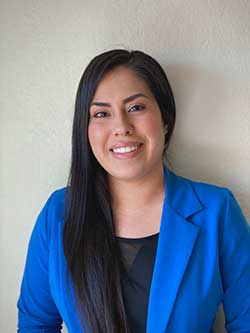 Hi, my name is Janella Bermúdez and I’m currently a fourth-year dental student at the University of Washington. I am one of eight students selected to be in the Regional Initiatives in Dental Education (RIDE) Program, an educational track of the UW. Through community-based experiences, RIDE develops socially responsible dentists who foster a commitment to improving the oral health of vulnerable communities.
Hi, my name is Janella Bermúdez and I’m currently a fourth-year dental student at the University of Washington. I am one of eight students selected to be in the Regional Initiatives in Dental Education (RIDE) Program, an educational track of the UW. Through community-based experiences, RIDE develops socially responsible dentists who foster a commitment to improving the oral health of vulnerable communities.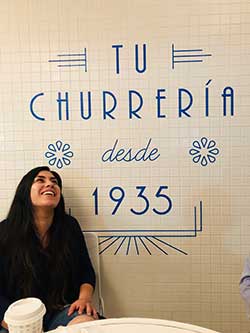 Joining the DeRouen Center
Joining the DeRouen Center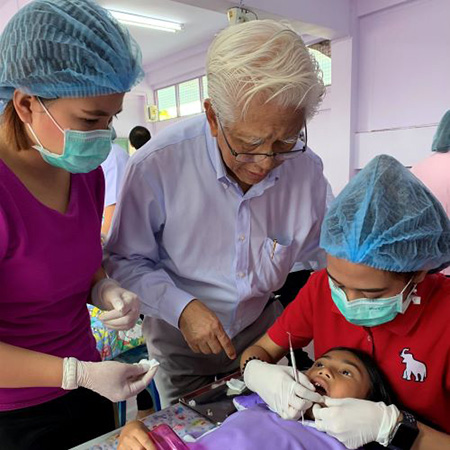 In the past decade, one of the activities of the WHO is to provide consultants to developing countries worldwide. I had the privilege to be short-term consultant for oral health in a few countries such as Dental education and dental public health in Laos PDR, and Myanmar; De-fluoridation to prevent fluorosis in Tanzania, India, and Sri Lanka; Atraumatic Restorative Treatment (ART) for appropriate dental restorations in Bhutan, Indonesia, and Syria. It was necessary to study the local health and oral health system and situation in advance, as well as seek the advice of local authorities during the visit. First-hand information about the people through direct dialogue was key input for the WHO consultants to develop a practical oral health plan with appropriate technology. My latest activities with the WHO was involvement in the Myanmar First National Oral Health Survey in 2016, followed by using collected data for planning the National Oral Health Strategy in 2018. Then in 2019, the Ministry of Health and Sport organized the WHO Regional side-meeting with the Asian Chief Dental Officers Meeting (ACDOM) in Mandalay, Myanmar.
In the past decade, one of the activities of the WHO is to provide consultants to developing countries worldwide. I had the privilege to be short-term consultant for oral health in a few countries such as Dental education and dental public health in Laos PDR, and Myanmar; De-fluoridation to prevent fluorosis in Tanzania, India, and Sri Lanka; Atraumatic Restorative Treatment (ART) for appropriate dental restorations in Bhutan, Indonesia, and Syria. It was necessary to study the local health and oral health system and situation in advance, as well as seek the advice of local authorities during the visit. First-hand information about the people through direct dialogue was key input for the WHO consultants to develop a practical oral health plan with appropriate technology. My latest activities with the WHO was involvement in the Myanmar First National Oral Health Survey in 2016, followed by using collected data for planning the National Oral Health Strategy in 2018. Then in 2019, the Ministry of Health and Sport organized the WHO Regional side-meeting with the Asian Chief Dental Officers Meeting (ACDOM) in Mandalay, Myanmar.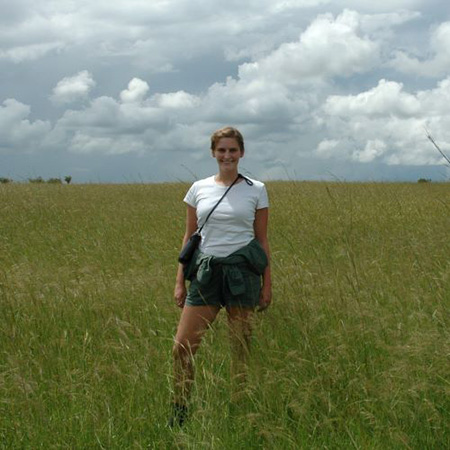 The first step in my Fogarty journey was a one-week long orientation at the NIH Headquarters in Bethesda, MD. The first two days of orientation involved going through an intensive Methodology workshop, and trainees can choose between quantitative or qualitative methodology approaches, dependent on the nature of their project. In these workshops, you get a crash course in data collection, management, and analysis that is pertinent to global health research. Every morning of orientation, there were breakfast networking sessions with directors of different NIH centers. I was one of the two people involved in the field of dentistry, and the first dental student to have ever received the award, which gave me the opportunity to have casual conversation with the director of the National Institute of Dental and Craniofacial Research (NIDCR), Martha J. Somerman, DDS, PhD. It was a rare opportunity to have a one-on-one conversation over breakfast with the director, an opportunity I know many dental researchers will never have. Further, this Fogarty orientation period provided us with more opportunities to interact with some other greats: Anthony Fauci, the immunologist and director of the National Institute of Allergy and Infectious Disease who made significant contributions to HIV/AIDS research and advocacy and is now leading the nation in the battle against COVID-19; Francis Collins, the director of the NIH who also led the Human Genome Project; and Roger Glass, the director of the John E. Fogarty International Center.
The first step in my Fogarty journey was a one-week long orientation at the NIH Headquarters in Bethesda, MD. The first two days of orientation involved going through an intensive Methodology workshop, and trainees can choose between quantitative or qualitative methodology approaches, dependent on the nature of their project. In these workshops, you get a crash course in data collection, management, and analysis that is pertinent to global health research. Every morning of orientation, there were breakfast networking sessions with directors of different NIH centers. I was one of the two people involved in the field of dentistry, and the first dental student to have ever received the award, which gave me the opportunity to have casual conversation with the director of the National Institute of Dental and Craniofacial Research (NIDCR), Martha J. Somerman, DDS, PhD. It was a rare opportunity to have a one-on-one conversation over breakfast with the director, an opportunity I know many dental researchers will never have. Further, this Fogarty orientation period provided us with more opportunities to interact with some other greats: Anthony Fauci, the immunologist and director of the National Institute of Allergy and Infectious Disease who made significant contributions to HIV/AIDS research and advocacy and is now leading the nation in the battle against COVID-19; Francis Collins, the director of the NIH who also led the Human Genome Project; and Roger Glass, the director of the John E. Fogarty International Center.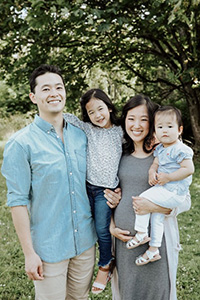 Justin is a third-year dental student at the University of Washington. He graduated from Brigham Young University with a degree in Physiology and Developmental Biology and is passionate about the health-care field. Justin lived in São Paulo, Brazil for two years as a volunteer through church and loves to learn about cultures and people around the world. He enjoys playing and spending time with his daughters and watching sports with his wife.
Justin is a third-year dental student at the University of Washington. He graduated from Brigham Young University with a degree in Physiology and Developmental Biology and is passionate about the health-care field. Justin lived in São Paulo, Brazil for two years as a volunteer through church and loves to learn about cultures and people around the world. He enjoys playing and spending time with his daughters and watching sports with his wife.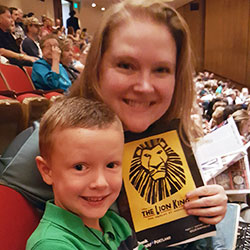 I chose to go into public health because it is an interesting and ever-evolving field. As the current COVID-19 pandemic shows, once basic public health breaks down, people cannot work, take care of their families, or interact with their communities in a normal way. Public health is the pulse of our society – without basic metrics of public health people are not able to pursue their daily lives.
I chose to go into public health because it is an interesting and ever-evolving field. As the current COVID-19 pandemic shows, once basic public health breaks down, people cannot work, take care of their families, or interact with their communities in a normal way. Public health is the pulse of our society – without basic metrics of public health people are not able to pursue their daily lives. Why I chose dentistry
Why I chose dentistry